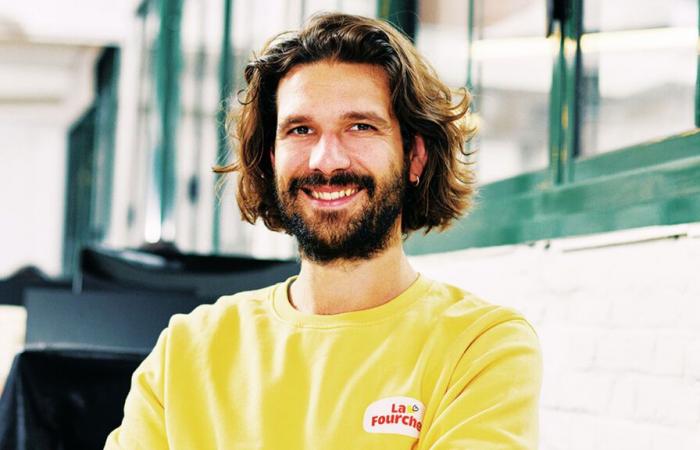How the e-retailer got through the crisis
- It continued to recruit its members, 80% of whom live outside city centers, thanks to word of mouth and an annual subscription system of €59.
- It developed its sales and references with the launch of a range of fresh products.
Solutions to bounce back
- Quality, competitive prices and education to encourage virtuous consumption.
- Co-creation of the distributor brand with its members in order to create attachment and trust.
LSA – What is your explanation for the organic crisis?
Lucas Lefebvre – Volumes fell by 10% in 2023 after a decline of 6% in 2022. The drop in consumption is linked to inflation, the contraction of budgets, the reduction in supermarket shelves and a lesser understanding of what organic is and what justifies its price given the profusion of labels. All this is unprecedented after twenty-five years of double-digit growth.
However, you raised 26.5 million euros.
L. L. – There has been a venture capital crisis since the end of Covid and a tech crisis. But it was not complicated to raise money because we had growth of 75% in 2023 compared to 2022, which proves the relevance of our model. We went from 30 million in 2022 to 53 million euros in 2023 with 4,500 references in all major categories, including 80% in food and 450 references for fresh products in Île-de-France which are working very well. We are targeting 75 million euros in 2024 and profitability at the start of 2025.
The fork
53 M € : turnover in 2023 (+ 76%)
4 500 references, including 600 products of French origin (and more than 850 in IDF)
270 employees- 100 to 110 € average basket
Source: The Forks
What will these funds be used for?
L. L. – We are going to recruit 30 people. We want to extend our delivery to 90% of the territory, compared to 50%, and our private label. Today, we have 300 products and we are aiming for 450. We are reaching a volume level which allows us to have competitively priced products, such as our diapers at €0.23 per unit.
How do you explain your success?
L. L. – We tried an entry through commitment, local or fair trade, but it is the price that speaks most to consumers. Our membership model helps reduce margins and marketing budget and we return it in the form of purchasing power. The subscription allows time to disseminate our values. Consumers enter by price and stay for engagement. At the beginning, they buy 20% organic to reach 80% and gradually more bulk. With a basket around €100.
What does the recovery go through?
L. L. – The reaction to the farmers’ crisis will favor organic farming. Everyone has heard that we are going to relaunch pesticides with the end of the Ecophyto plan. This is one of the best organic campaigns! In France, it accounts for 6 to 7% of food consumption and 12% of the usable agricultural area. The government does not push organic, relegated to an “eco-friendly thing” when we are talking about basic things. If we paid the real price, no one would be able to eat conventionally. The negative externalities of conventional are financed by citizens. But there will come a time when they will notice. The Court of Auditors said that it was necessary to do agroecology from a purely economic point of view. Mentalities are changing…






